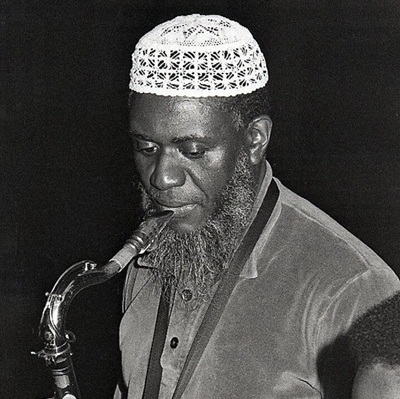.
.
“The Winslows Take New Orleans” was a short-listed entry in our recently concluded 64th Short Fiction Contest, and is published with the consent of the author.
.
.
___
.
.
photo by Thomas Leuthard/via Wikimedia Commons/CC BY 2.0 DEED

,
The Winslows Take New Orleans
by Mary Liza Hartong
.
…..Uncle Cheapskate and Aunt Whiner show up on your doorstep every December in the short breath between Thanksgiving and Christmas because they find day-of holiday travel exhausting, not to mention expensive. They don’t “do” presents. They won’t watch anyone’s baby. They are quite often “too old for this.” Their marriage has been bereft of children but rife with adventure. They’ve met Billy Joel. They’ve slept in the White House. They’ve seen the Louvre, which was “a dump.” Meanwhile, the all-you-can-eat Chinese buffet off the interstate is “marvelous” and “you must try it.” They are two people who knew you when you were “this little.”
…..No matter the weather, Uncle Cheapskate and Aunt Whiner always arrive with two checked bags, a geriatric shih-tzu, and huge, petulant appetites that demand to be sated immediately. While it is “so good to see you,” they are also “starving” because they “didn’t have lunch.” They want to know if the Cheesecake Factory is nearby. They have a coupon. You offer them a snack for the car—pretzels, an apple, a peanut butter sandwich—but Aunt Whiner insists on getting to the restaurant before it “gets crowded.”
…..The shih-tzu, whose name you are in trouble for forgetting, is “perfectly fine by himself.” Just remember to leave the TV on for him. Animal Planet. Volume up. Aunt Whiner doesn’t wait until you are seated to ask about your love life, instead ambushing you in the parking lot. She wonders if you’ve “met a nice man” and if you “ever will” with “those split ends.” She has a homosexual stylist she adores. Maybe he will move down here. They’re all flying south. Uncle Cheapskate agrees. You “should see the skimpy bathing suits” at Key West these days. Abominable. It used to be a “family place” and now, “yeesh.” You are “welcome anytime” at their beach house, but only if you promise not to leave it “looking like a pig sty” like your little sister did last summer. Do you hear from Marion often?
…..Make sure to “get a load of the tush on that one” as the waitress walks away. Sip your Diet Coke, but don’t slurp. So? Is Marion “adjusting”? You say you two aren’t that close anymore, but that she seems to be doing well. She likes her classes, you think. Uncle Cheapskate wishes someone would tell her to get her head out of the clouds. Forget this painting nonsense. Do you have her email address? He wants to send her an “interesting article” he found on Facebook. Aunt Whiner wants to know if “anybody else is freezing” because “it’s always cold in here.” Next time “bring a sweater, will you?” She brought a whole suitcase of them. Don’t start with her. You know, she thinks of you two “like her own children.” She remembers when you were born, how she was working as a secretary for Richard Roberts—you remember him, tall, crooked nose, heck of a golfer—who let her take the rest of the day off to go and meet your mother at the hospital. A real “class act” he was. You looked just like Aunt Whiner when you were born. Nothing like your father’s side of the family. How’s your Uncle Tightwad “holding up” by the way? Always liked him. Always saw eye to eye. The waitress brings the wrong appetizer proving once again that “service these days” has “gone down the crapper.”
…..They “have to be honest.” Aunt Whiner and Uncle Cheapskate “never see you.” Neither does Grandpa, who “only has so many good years left.” While they understand that divorce can be hard on children, this is “no excuse” for neglecting those who matter most. Promise them you will come for Easter. And Grandpa’s birthday. And their next-door neighbors, the Bennings, do a fantastic Summer Solstice potluck. You should stop by if you can. They understand that you’re busy, though without a boyfriend “how busy can you really be?”
…..The shih-tzu sleeps with “mommy and daddy” in your bed while you wrestle with the air mattress. You think of calling Marion, but “long distance costs a fortune.” Besides, she’s probably asleep in the crook of someone’s shoulder or working late in the studio. Uncle Cheapskate forgot “that damn contraption” so his snores pour, operatic, through the apartment all night. By the time you find Aunt Whiner poking around the kitchen the next morning you look like the walking dead. Not to worry. It’s “nothing a little makeup can’t fix.” You ask if you can make them some eggs. A bowl of cereal? No, no, “just a hot cup of Joe” for Uncle Cheapskate, and the dog will have the chicken breast you were saving for later. At their age they’re no longer interested in breakfast. You secretly hope you never lose interest in breakfast.
…..They’ve “done” the French Quarter a thousand times, so you take them to the casino instead. Uncle Cheapskate asks if they offer a discount to Veterans. He “is, too!” a Veteran. What the hell do you call this? The scar from his golf cart accident gets you through the doors. Aunt Whiner loves the way they’ve decorated this place, “so New Orleans!” But have you seen the bathrooms? “Filthy.” Uncle Cheapskate wins ten dollars, loses twenty, and wins fifty. Time to “hit the road” and “grab a bite” before his blood sugar tanks. You ask “how about this place?” half a dozen times before they point to the first restaurant you suggested and tell you it looks like their kind of spot. They love live music. Your uncle used to play the saxophone when they first met. He wasn’t allowed in the all-girls dormitory so he’d stand outside and play “Moon River” until one of the dusty old dorm mothers would scuttle out in her robe and tell him to “get lost, pal.” Back then Aunt Whiner felt like anything could happen. Does she still? Uncle Cheapskate takes a whopping bite of his muffuletta sandwich that spews chopped olives across the table and onto her lap. She plucks one into her mouth and says “clearly!” Aunt Whiner hopes you will find someone who “keeps life interesting.”
…..Before you know it, Sunday rolls around. Your guests would love to stay another week and “really see the sights” but they have to get back to their routine, their house plants, their regular bowel movements. The water down here “just doesn’t agree” with them. Uncle Cheapskate slips you a five-dollar bill “for emergencies” as he hauls the suitcases into the car and Aunt Whiner bursts into a hurricane of tears. You “mean the world” to her, don’t you know? She’s just an old fuddy duddy, but she’s always there for you. And she really will send you the samples she gets with her Lancôme order this month. You could use the help. “Wrap it up” Uncle Cheapskate reminds everyone, due to the fact that you’re “burning daylight.” What, she can’t share a nice moment with her niece? Not when they’ve got a flight to catch. Alright, already. Goodbye, sweetheart, they will “see you soon.” For two people who cleaned out your fridge and left the tap on, their absence leaves a bigger hole than you’d imagine. It happens every year. Still, you let them come.
…..That night, as you microwave a “Family Size” lasagna, you take a chance and call Marion. By some small miracle, she picks up. No, she wasn’t doing anything. What’s new? You tell her all about the visit. The waitress with the ample backside and the sound of snoring and the little bits of olive spewed across the table. Marion wishes she were there. It’s “been too long” she laments at the sound of the deflating air mattress, to which you have to agree. If you’ll still have her, she’d love to come down for a few nights. You’ll pick her up at the airport, right? Sure. Why not? “What are sisters for?”
.
.
___
.
.

Mary Liza Hartong lives and writes in her hometown of Nashville, Tennessee. She’s a Dartmouth grad, a Fulbright Scholar, and a proud member of the queer community. Her first novel is Love and Hot Chicken (William Morrow).
.
___
.
.
Click here to read “The Old Casino,” J.B. Marlow’s winning story in the 64th Jerry Jazz Musician Short Fiction Contest
Click here to read more short fiction published on Jerry Jazz Musician
Click here to read The Sunday Poem
Click here for information about how to submit your poetry or short fiction
Click here for details about the upcoming 65th Jerry Jazz Musician Short Fiction Contest
Click here to subscribe to the Jerry Jazz Musician quarterly newsletter (it’s free)
Click here to help support the continuing publication of Jerry Jazz Musician, and to keep it ad and commercial-free (thank you!)
.
.
___
.
.
Jerry Jazz Musician…human produced (and AI-free) since 1999
.
.
.















































